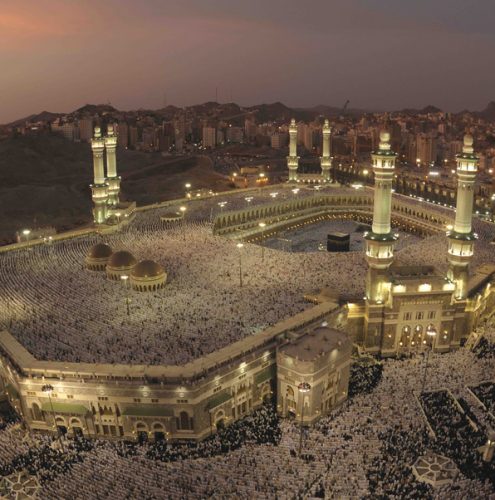Embarking on a journey to Saudi Arabia, Egypt, or any of the world’s revered holy sites is an experience rich in history, culture, and spiritual significance. To ensure a smooth and memorable trip, meticulous planning and an understanding of local logistics are paramount. This guide provides essential tips for navigating the practicalities of travel in these unique destinations.
1. Visa and Entry Requirements: Your Gateway to Exploration
Visa regulations are often the first and most crucial step in planning your trip. Requirements can vary significantly based on your nationality and the purpose of your visit.
•Saudi Arabia: The Kingdom has significantly eased visa processes for tourists in recent years, introducing e-Visas for many nationalities. For pilgrimage (Hajj and Umrah), specific visa categories apply, often requiring applications through authorized agents. Always check the latest requirements on the official Visit Saudi website or through your embassy/consulate well in advance of your travel dates [1]. Ensure your passport has at least six months of validity beyond your intended departure date.
•Egypt: Most nationalities require a visa to enter Egypt. An e-Visa system is available for many countries, or you can obtain a visa on arrival at major airports. However, it’s always recommended to secure your visa beforehand to avoid potential delays or issues upon arrival. Verify the specific requirements with the Egyptian embassy or consulate in your country [2].
•Holy Sites (General): For holy sites located in other countries (e.g., Jerusalem in Israel, Mount Nebo in Jordan), research the specific visa requirements for that country. Some countries may have special pilgrimage visas or entry procedures.
2. Best Time to Visit: Climate, Crowds, and Celebrations
Choosing the right time to travel can greatly enhance your experience, impacting everything from weather comfort to crowd levels and the availability of local events.
•Saudi Arabia: The cooler months from October to April are generally the most pleasant for sightseeing, with temperatures ranging from mild to warm. Summers (May to September) can be extremely hot, especially in inland areas. If your trip is for Hajj or Umrah, the timing is dictated by the Islamic calendar, which shifts annually. Be prepared for large crowds during these periods [3].
•Egypt: Similar to Saudi Arabia, the best time to visit Egypt is during the cooler months, from October to April, when temperatures are more moderate for exploring ancient sites. Summers are very hot, particularly in Upper Egypt (Luxor, Aswan). The shoulder seasons (April-May and September-October) can offer a good balance of pleasant weather and fewer crowds.
•Holy Sites (General): Consider major religious holidays or festivals, which can lead to significant crowds and higher prices, but also offer unique cultural experiences. For example, visiting Jerusalem during religious holidays will be very crowded but also very vibrant.
3. Local Transportation: Navigating Your Destination
Understanding local transportation options is key to efficient and cost-effective travel.
•Saudi Arabia: Major cities like Riyadh and Jeddah have developing public transport networks, including ride-sharing services (Uber, Careem) which are widely used and convenient. For inter-city travel, domestic flights are efficient, and long-distance buses are available. Renting a car is an option for those comfortable with local driving conditions [4].
•Egypt: In cities like Cairo, taxis and ride-sharing apps are common. For inter-city travel, trains are a popular and comfortable option, especially for overnight journeys between Cairo, Luxor, and Aswan. Nile cruises are a unique way to see many of Egypt’s ancient sites. Buses are also available for budget travel [5].
•Holy Sites (General): In many traditional and holy cities, walking is often the best way to explore historical areas. Public transportation, including buses and sometimes trams, is usually available. For specific holy sites, organized tours often include transportation, which can be convenient.
4. Cultural Considerations and Etiquette: Respecting Local Traditions
Respecting local customs and traditions is vital for a positive travel experience and to show appreciation for the host culture.
•Dress Code: Modest dress is generally recommended in both Saudi Arabia and Egypt, especially when visiting religious sites. For women, this typically means covering shoulders and knees, and often wearing a headscarf in mosques and other holy places. Men should also dress respectfully. In Saudi Arabia, adherence to conservative dress is more strictly observed [6].
•Greetings and Interactions: A polite greeting and a smile go a long way. Be mindful of local customs regarding personal space and physical contact, especially between genders. Always ask for permission before taking photos of people.
•Ramadan: If traveling during the holy month of Ramadan, be aware that many restaurants may be closed during fasting hours (sunrise to sunset), and business hours may be altered. Eating, drinking, and smoking in public during fasting hours are generally discouraged and may be prohibited in some areas.
•Photography: Be respectful when taking photos. Avoid photographing military installations or sensitive government buildings. Always be discreet when photographing people, and if possible, ask for permission.
5. Health and Safety: Prioritizing Your Well-being
Taking precautions for your health and safety is essential for any international trip.
•Travel Insurance: Always purchase comprehensive travel insurance that covers medical emergencies, trip cancellations, and lost luggage.
•Vaccinations: Consult your doctor about recommended vaccinations for Saudi Arabia and Egypt well before your trip.
•Water and Food Safety: Drink bottled water only. Be cautious with street food, and ensure food is freshly cooked and served hot. Wash hands frequently.
•Sun Protection: The sun can be intense in these regions. Use high-SPF sunscreen, wear a hat, and stay hydrated.
•Local Laws and Customs: Familiarize yourself with local laws and customs, as they can differ significantly from your home country. Penalties for offenses can be severe.
By carefully planning these logistical aspects, your journey to Saudi Arabia, Egypt, and other holy sites will be not only enriching but also remarkably smooth, allowing you to fully immerse yourself in the profound experiences these destinations offer.

